De-/Culturalization of Gender: Ambivalent Entanglements and Pitfalls of Gender and Race Politics
- Svenja Schurade (Chair)
- Dr. Miriam Gutekunst
- Dr. Denise Bergold-Caldwell
- Prof. Dr. Sabine Hess
- Johanna Elle
- Dr. Gabriele Dietze (Discussant)
The panel focuses on the ongoing ethnicization and/or culturalization of gender narratives and politics that have become dominant all over Europe, stretching across such diverse fields like antifeminism and gender and feminist politics itself. The three papers presented in this panel discuss the ways in which gendered notions of cultural difference fuel neo-racist constructions. They also trace how Western gender and feminist politics and discourses are being renegotiated along the same lines, with highly ambivalent effects.
-
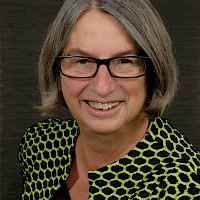
Dr. Gabriele Dietze
Humboldt Universität Berlin, Zentrum für transdisziplinäre Geschlechterstudien
Discussant
Gabriele Dietze is travelling scholar teaching and researching in the fields of Gender- Medie- Cultural- and Migration-Studies in German and US-American Universities. She is Harris Guest Professor at Dartmouth College, N.H. and currently fellow of the VW-Foundation with the project “Quarantine Culture” in the Institute of European Ethnology at Humboldt University zu Berlin. Recently published with Julia Roth (Eds.), Right-Wing Populism and Gender in Europe and Beyond.
-
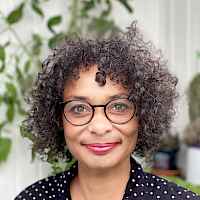
Dr. Denise Bergold-Caldwell
University of Marburg, Centre for Gender Studies and Feminist Future Studies
Ethnization of Sexism: Figurations of Anti-Feminism before and after ‘Cologne’
Debates on gender and sexuality – bevor and after ‘Cologne’ - address gender inequality and sexism often as problems of "cultural others". ‘Cologne’ although, seems to be a turning point; a point where the entanglement of antifeminism and racism reached a new step.
The Lecture wants to summaries the outcomes of a Case study, which focused on discourse production ‘after cologne’. The case study analyzed the discursive entanglement of antifeminism and racism. The aim was to find out how these discourses shape practice, within integration courses for immigrants. Discourses became apparent in media accounts, in the form of a discourse on population-politics, a discourse on gender-political superiority of the 'West' and a discourse of threat and/or seduction with ambivalent references to the 'Arab Other'.
Although right-wing or population-politics discourses, didn’t shape the lesson within the integration courses, the assumption of a gender-political superiority of the West was predominantly connected with the conviction that equality had already been achieved in this country. Intersectional structural inequalities were largely ignored, as were the participants' experiences of racism.
Denise Bergold-Caldwell is a research associate at the Center for Gender Studies and Feminist Futures Studies. She holds a doctorate in education. She is interested in Black Feminist Theory, critical post- and decolonial theories, and educational theory(s) in these contexts.
-
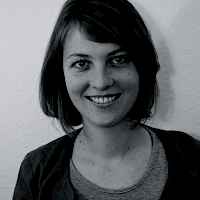
Dr. Miriam Gutekunst
Maximilian University Munich, Institute for European Ethnology and Cultural Analysis
Cultural difference as field of conflict
Reflections on the role of anthropological knowledge in (culturalist) feminist politics
The use of cultural difference as explanation for the level of oppression or emancipation of women is currently (again) extremely dominant in politics in Europe, however this discourse goes back to colonial times (Mernissi 1987, Stoler 2010). Islam and related topics like the veil or ‚forced marriages’, but also ideas of a supposed ‚backward’ Muslim masculinity constitute a gender-political focal point in this context. The debate takes place across the political spectrum. Against the backdrop of the instrumentalisation of feminist arguments for nationalist and anti-immigration policies (Neuhauser/Hess/Schwenken 2017, Hark/Villa 2017) as well as the social impact of a neo-racism, that is based on the essentalisation of cultural difference (Balibar 1992), some feminist scholars and activists raise the question, how and whether cultural difference should be used as an argument. In this context quite different feminist positions, theories and knowledge come into play and are discussed.
This paper reflects on the role of anthropological knowledge in (culturalist) feminist politics, using the example of public statements of anthropologists in current debates about Islam and Gender in Germany. Cultural Anthropology has contributed significantly to the knowledge about cultural difference – in both ways: in the sense of an essentialisation as well as a de-essentialisation of culture (Abu-Loghud 1991). The paper is based on the running research project “Ambivalent gender knowledge. Cultural difference as field of conflict in feminist politics of the postmigrant society”.
Dr. Miriam Gutekunst is a postdoc researcher at the Institute for European Ethnology and Cultural Analysis at the Ludwig-Maximilians-University Munich. Her main research areas are migration and borders, gender and feminist movements as well as transnational and postcolonial entanglements. She is part of the F*AMLab – Laboratory for feminist research, education and practice. 2018 she published her dissertation “Grenzüberschreitungen. Migration, Heirat und staatliche Regulierung im europäischen Grenzregime” in the Transcript publishing house. Currently the digital exhibition “FEMINISTISCH VERÄNDERN. Räume, Kämpfe und Debatten in München” went online, the product of a MA student research project at the Institute of European Ethnology and Cultural Anthropology under the responsibility of Miriam Gutekunst and Birgit Erbe (Frauenakademie München e.V.): www.feministisch-veraendern.de
-
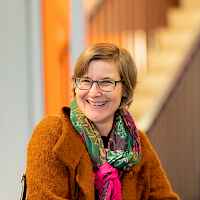
Prof. Dr. Sabine Hess
University of Göttingen, Institute for Cultural Anthropology/European Ethnology
-
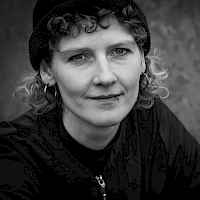
Johanna Elle
University of Göttingen, Institute for Cultural Anthropology/European Ethnology
Gender in German Refugee Politics – Reflections on Shortcomings, Sideeffects, and Pitfalls
Against the backdrop of a three years-long research project on “Gender, Forced Migration & the Politics of Reception” we will show how gender entered the discursive and political field of asylum in the aftermath of the 2015 events quickly labled as “European Refugee Crisis”. Whereas gender was for a long time a marginal(ized) category and analytics in the political as well as academic migration field this has almost changed overnight in 2015. By applying a praxeographic intersectional approach, based on notions of the anthropology of policy as well as legal anthropology, will show how gender-narratives were used by different actors in the field producing highly ambivalent repercussions and highly contradictory material effects. Thereby we will demonstrate how racial and gendered narratives intersect producing a specific ethnizized paternalist-authoritarian stance of gender-mainstreaming whereas ‘gender-equality’ appears again as a white women’s burden.
Prof. Dr. Sabine Hess is a full professor of Cultural Anthropology/European Ethnology at the University of Göttingen since 2011. She specializes in migration and border studies with a specific interest in a gendered analyses of policies and practices. She is a founding member of the European interdisciplinary “Network on critical migration and border studies” (kritnet) and directs the interdisciplinary “Laboratory on migration and border regime studies” at the University of Goettingen that provides space for regular discussions on theories and research in the respective fields for 18 PhD students and Postdocs. Since 2008 she is spokeswomen of the Commission for Women and Gender Studies of the dgv.
Johanna Elle works on the topics of gender, flight, migration, pop culture, diversity and racism. She is doing her PhD at the Institute for Cultural Anthropology/European Ethnology at the University of Göttingen on gender specific aspects of arrival and reception policies of refugees. Her focus is on juridico-political analyses as well as on the development and application of participatory research methods.
Contributors
-

Chair
Svenja SchuradeUniversity of Göttingen, Institute for Cultural Anthropology/European Ethnology
-

Dr. Miriam Gutekunst
Maximilian University Munich, Institute for European Ethnology and Cultural Analysis
-

Dr. Denise Bergold-Caldwell
University of Marburg, Centre for Gender Studies and Feminist Future Studies
-

Prof. Dr. Sabine Hess
University of Göttingen, Institute for Cultural Anthropology/European Ethnology
-

Johanna Elle
University of Göttingen, Institute for Cultural Anthropology/European Ethnology
-

Dr. Gabriele Dietze
Humboldt Universität Berlin, Zentrum für transdisziplinäre Geschlechterstudien
Join
To take part in the conference please register here. After completing the registration, your login data and further information will be sent to you by email.